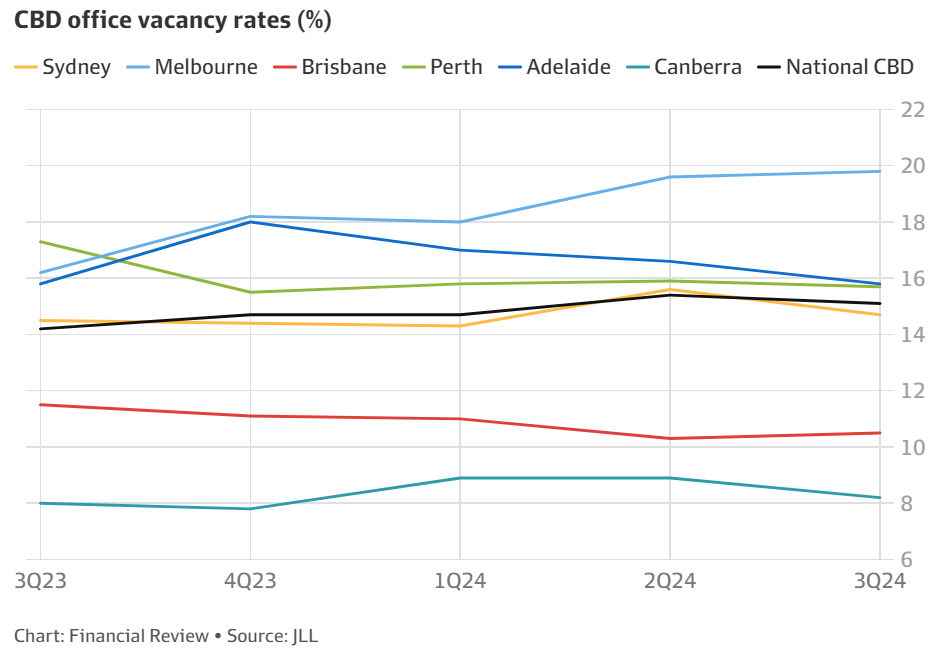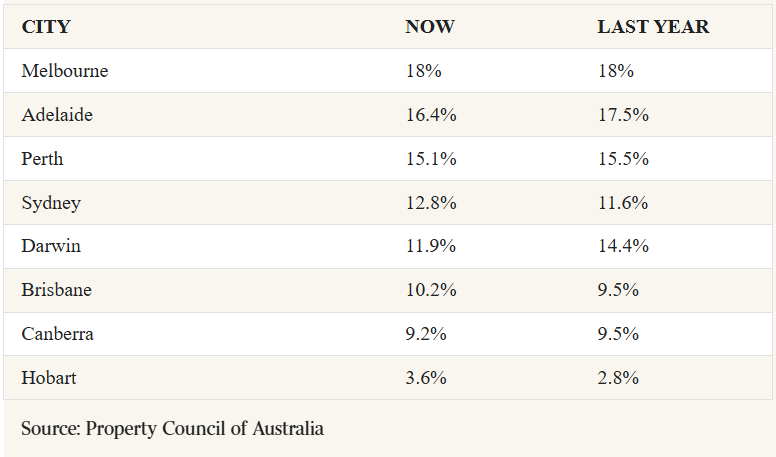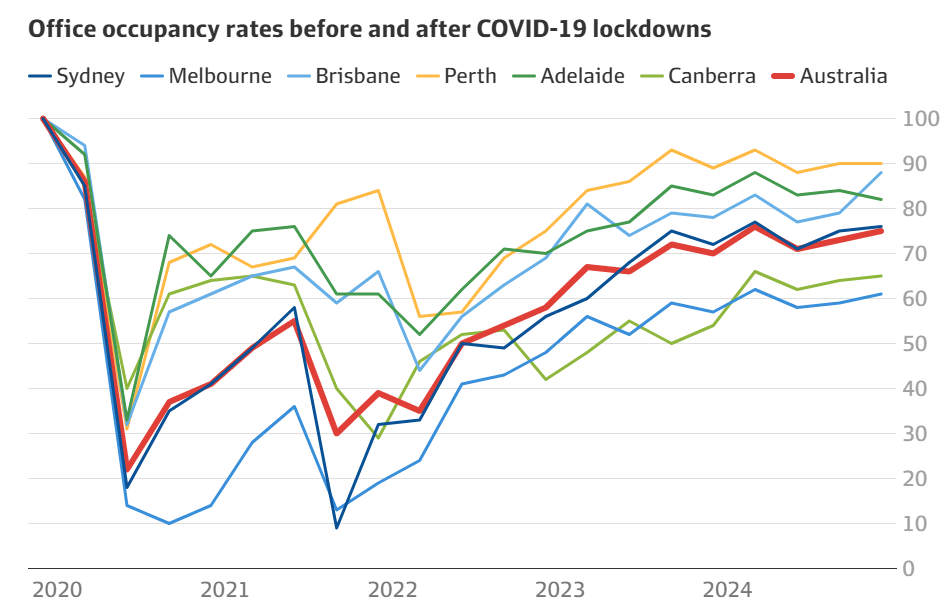Melbourne’s office market has the highest vacancy rate in the nation.
According to JLL Research, Melbourne’s CBD office vacancy rate increased to almost 20% in Q3 2024, well above the other capital cities, which recorded falling vacancy rates.

Separate data from the Property Council of Australia (PCA) showed that Melbourne’s office vacancy rate was 18% in Q4 2024, well above the other capital city markets.

Data from CBRE shows that the shift to working in offices instead of at home gained pace in the December quarter.
CBD office attendance rates nationwide averaged 75% of pre-pandemic levels during the quarter, compared with 72% in the previous three months and 70% at the start of 2024.
Perth’s CBD office attendance rate has risen to 90% of levels prior to the pandemic, while Tom Broderick of CBRE says the introduction of $0.50 public transport fares contributed to the rise in Brisbane’s attendance rate to 88%.
The significant outlier was Melbourne. It recorded an average weekly attendance rate of 61% of pre-Covid levels.

Melbourne’s high office vacancy rate is a source of concern for large landlords, notably Dexus, which has a portfolio of major office buildings across the country and is developing new ones, such as the Atlassian in Sydney.
Dexus CEO Ross Du Vernet stated that the state government was “not serious” about returning public servants to their workplaces. Last year, NSW Premier Chris Minns issued an order that ended work-from-home arrangements for the state’s public service.
“The sense we get from our customers in Melbourne is they are really yearning for leadership on this. It is improving but it is slow and it is a noticeable difference from CBD Sydney, Brisbane and Perth”, Du Vernet told The AFR.
“It’s almost like a sad reflection on where Melbourne was pre-COVID when it was probably the stand-out city in terms of the diversity and strength of growth in the government sector, the university sector or business”.
“It’s certainly taken a significant hit with government policies and attitudes since COVID”, he said.
Property Council chief Mike Zorbas agreed, stating that “active leadership” is needed from the Victorian government.
“We need to see active leadership from the state government to support the vibrancy of the CBD and help Melbourne remain one of the best cities to visit in the world”, he said.
The premise that workers should return to CBD offices to assist commercial landlords is myopic and self-interested.
While CBD businesses have undoubtedly suffered from remote work, suburban businesses closer to people’s homes have gained as economic activity shifted there.
Remote working, therefore, represents a shift of economic activity rather than a loss of activity.
The property industry, as usual, is talking its own book. Policymakers should also consider the welfare of workers as well as suburban businesses.

